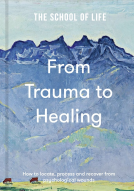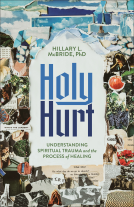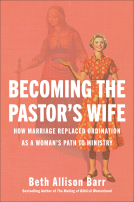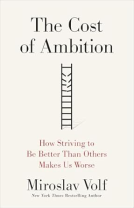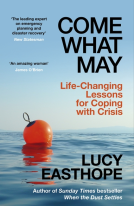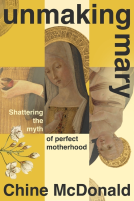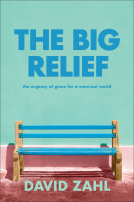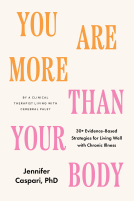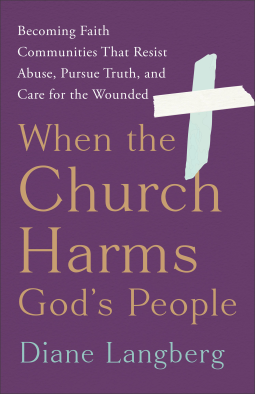
When the Church Harms God's People
Becoming Faith Communities That Resist Abuse, Pursue Truth, and Care for the Wounded
by Diane Langberg
This title was previously available on NetGalley and is now archived.
Send NetGalley books directly to your Kindle or Kindle app
1
To read on a Kindle or Kindle app, please add kindle@netgalley.com as an approved email address to receive files in your Amazon account. Click here for step-by-step instructions.
2
Also find your Kindle email address within your Amazon account, and enter it here.
Pub Date 12 Nov 2024 | Archive Date 6 Dec 2024
Baker Academic & Brazos Press | Brazos Press
Talking about this book? Use #WhentheChurchHarmsGodsPeople #NetGalley. More hashtag tips!
Description
"A heartbreaking but necessary book."--Christianity Today
Internationally recognized psychologist Diane Langberg has come face to face with the crushing trauma of sexual abuse, trafficking, domestic abuse, and rape--and its cover-up.
Even more tragic, she has encountered it all within Christian communities and the church.
As a highly respected trauma scholar and psychologist working in the United States and around the world for more than 50 years, she envisions a better way.
In When the Church Harms God's People, Langberg unveils what she has learned about how churches cause harm and why Christian communities often foster unhealthy leaders who end up hurting rather than protecting God's people. She also offers hope for the future, describing how churches can reflect Christ not just in what they teach but also in how they care for themselves and others.
This book is an invaluable tool for leaders and laypeople alike who want to help the church resist abuses of power and become a safe place for survivors.
Advance Praise
“In the struggle against sexual abuse in the church, I can think of no one more trusted or more equipped to address the topic than Diane Langberg. This book expertly diagnoses the problems and points to a new direction of hope and healing. If you are tired of seeing persons and systems use the name of Jesus Christ to prey on the vulnerable, this book will help you fight for a different future.”—Russell Moore, editor in chief, Christianity Today
“At least once a week, I field calls from distressed church leaders who are responding to abuse allegations against one of their colleagues. They all want to know: What do we say? What do we do? How do we protect the church? Read this book if the crisis hasn’t yet reached your church—or even if it has! You will learn why abuse happens, how common church responses can create more wounds, and how to begin examining whether your church culture and values are indeed caring for ‘the least of these’ in your community.”—Philip G. Monroe, PsyD, clinical psychologist, Langberg, Monroe & Associates
Available Editions
| EDITION | Other Format |
| ISBN | 9781587436451 |
| PRICE | US$19.99 (USD) |
| PAGES | 176 |
Available on NetGalley
Featured Reviews
 Lindsay O, Reviewer
Lindsay O, Reviewer
I absolutely agree with the overall message of this book and am grateful for Diane Langberg’s prophetic voice, expertise, and important work in the world. That said, I found the book to be a bit repetitive and thought it could have been edited down substantially.
The main point that she expounds upon throughout is summed up in this quote: “Protecting all vulnerable people should be part of a church’s DNA. When abuse is alleged or exposed, the church is called to tend the lambs, not the institution or system. Covering up sin—or a crime—is failing to make God’s priority our own. We honor him by caring for the wounded, dragging abuse into the light, often at great cost, and calling it by its right name.”
This is an important message, but as someone who is already on board with this point, I found myself wanting more from the book; it seemed like she made the same point from different angles but didn’t delve too deeply into what should be done in a practical sense or what larger systems are at play in creating these cultures of abuse.
I disagree with the theological premises for some of her arguments (substitutionary penal atonement, an overemphasis on sin nature, etc), though that theology is to be expected from an evangelical author (I assume she’s evangelical?). I do appreciate her call for Christians to be like Christ, exposing abuse and caring for the most vulnerable among us.
 Yakub T, Educator
Yakub T, Educator
Sometimes, the place that we think is the safest can be the place that abuse so many people. Even, church itself. Diane Langberg has done a really great job by making a book called When the Church Harms God's people and I really hope that all of you can get a new perspective from her.
It's difficult to imagine being Diane Langberg, one of the earliest and most respected trauma scholars to focus her energies on the evangelical world. Having been in the field for more than 50 years, Dr. Langberg has become a trusted voice in the areas of post-traumatic stress disorder related to traumas such as sexual abuse, human trafficking, domestic abuse, and rape and the oft-acknowledged tendency of many of our smaller and larger institutions to cover these things up.
With "When the Church Harms God's People: Becoming Faith Communities That Resist Abuse, Pursue Truth, and Care for the Wounded," Dr. Langberg begins the journey toward imagining a different way for faith communities, particularly Christian faith communities, to stop causing harm and start being the sanctuary they have always been intended to be.
Dr. Langberg has long been a compassionate and knowledgeable voice in faith communities and institutions where far too often churches have caused harm and unhealthy leaders have hurt rather than protect and support those they lead. Dr. Langberg is far from alone in providing a strong presence for hope within evangelical communities, though she is a rare voice to weave together a tapestry of both expertise and hopeful presence.
With "When the Church Harms God's People," Dr. Langberg provides more of a fundamental glimpse inside these concerns and how churches can change their paths and begin toward a journey better reflecting Christ. Dr. Langberg is far less prescriptive here than I'd hoped, hopeful generalities offering encouragement toward a different way but very little in the way of actual guidance toward how to get there.
Perhaps part of the problem is that this is a field I have been around much of my adult life, though not as a psychologist and not specifically to the evangelical community (NOTE: While Dr. Langberg talks very little about her own faith journey, her undergraduate degree is from my home state's Taylor University - one of the nation's oldest evangelical universities. Given this fact and her chosen language, I am assuming a more evangelical literary lens here). Much of "When the Church Harms God's People" feels very basic to me, the sort of discourse that feels as if it's culled from a keynote discourse rather than as a deep dive into the extensively documented world of abusive religion and the leaders who perpetuate it. From Jerry Sandusky to the Southern Baptist Convention, Dr. Langberg provides an extended glimpse into the problem and points toward a solution much like that friendly fellow you meet in rural America who offers up directions by saying "It's over yonder past the Stop-and-Go. Take a right, you'll see it on your left."
This isn't a bad approach, despite my cheeky sarcasm. It's a necessary approach for those gingerly beginning the process of addressing difficult issues that tap into greatest vulnerabilities of what it means to be human. However, in my case, I suppose, I was hoping for much more and was hoping for deeper clinical insights, greater organizational observations, and a more prescribed genuine path toward a different way specifically targeted toward organizations that continue to resist. As a resident in the city where the latest national SBC convention was held. I can assure you that the resistance to this message is still strong.
I guarantee you there will be SBC leaders, all men, who resist Dr. Langberg's entire message because she doesn't have a penis.
So, while "When the Church Harms God's People" isn't quite the book I'd hoped it would be and didn't really add much into my own personal and pastoral toolbox, it's an encouraging and valuable "101" journey into the needed topic of how churches cause, perpetuate, and then refuse to address religious trauma and those who've experienced it. For those who've grown weary of church leaders using Jesus's name to hide behind their dysfunctions and abusive behaviors, "When the Church Harms God's People" is a place to begin the discussions and look toward a different way.
 Rachael N, Reviewer
Rachael N, Reviewer
Thanks to the publisher and NetGalley for the e-ARC. This was a solid practical book but not as good as Langberg's other work.
If you've ever felt the sting of betrayal by a place meant to be a sanctuary, When the Church Harms God's People by Diane Langberg is a must-read. Langberg, with over fifty years of experience as a psychologist, delves into the painful realities of abuse, deception, and the failures within church communities. With compassion and a profound understanding of human suffering, she offers a voice to those who have been silenced and sheds light on the systemic issues that allow such harm to persist. This book is not just a critique but a call to action for faith communities to embody the true nature of Christ—one of love, truth, and protection for the vulnerable. Langberg's writing is both heart-wrenching and hopeful, encouraging readers to confront the darkness within religious institutions and work towards creating safe spaces for healing. I highly recommend picking up this book—it is a powerful, necessary read for anyone committed to justice and the true mission of the Church.
 Andrew P, Reviewer
Andrew P, Reviewer
Diane Langberg’s When the Church Harms God’s People is a profoundly insightful and deeply reflective examination of the tragic reality of abuse within the Christian church. Drawing on her extensive experience as a psychologist, Langberg addresses the heartbreaking truth that the very institutions meant to be sanctuaries can sometimes become places of profound harm. Through her book, she offers not only a pathway for healing but also a compelling call for the church to return to its true mission of embodying Christ’s love, justice, and truth.
Chapter 1: Encountering Sickness in the Body of Christ
Langberg begins by sharing her experiences as a psychologist, detailing the profound suffering she has witnessed in those harmed by the church. She underscores the long and difficult journey toward healing from the damage of abuse, highlighting the church's failure to be the salt and light it is called to be when it covers up evil, abuse, and violence. This chapter sets the stage for the critical examination of how the church must confront its failures to fulfill its mission.
Chapter 2: What the Church Is Called to Be
In this chapter, Langberg explores the true calling of the church, emphasizing that it must reflect the character of Christ. She reminds readers that the church is meant to be the embodiment of Christ’s character and that any deviation from this likeness is a betrayal of its mission. Langberg also critiques the church's obsession with external success, noting that true fruitfulness lies not in fame, wealth, or large numbers, but in living out the humble and servant-hearted example set by Jesus.
Chapter 3: Wolves, Sheep, and Shepherding
Langberg warns of the dangers posed by wolves in the church—leaders who exploit the vulnerable instead of protecting them. She vividly illustrates the deceptive nature of such individuals, noting that false prophets may appear as sheep but behave like wolves. The true measure of a leader, Langberg argues, is not found in their words but in the integrity of their life, urging discernment in evaluating those who hold positions of authority in the church.
Chapter 4: Examining Culture in the Light of Christ
In this chapter, Langberg challenges readers to critically examine the culture within the church and asks whether it truly reflects Christ’s teachings. She calls out the church's failure when it becomes a source of harm rather than a place of refuge, stressing the importance of vigilance against the lies and self-deception that can take root within Christian communities.
Chapter 5: Self-Deception
Langberg delves into the concept of self-deception within the church, showing how it leads to complicity in abuse. She discusses how wolves, who know how to disguise themselves as shepherds, gain access to vulnerable sheep, and warns of the ease with which people can deceive themselves, often justifying harmful actions in the name of religious duty. This chapter serves as a sobering reminder of the dangers of unchecked power and self-righteousness.
Chapter 6: Systemic Deception
This chapter addresses how deception can become entrenched within church systems, leading to widespread harm. Langberg describes systemic deception as insidious, often masquerading as righteousness, and critiques the church's tendency to ignore its own sins while pointing fingers at the world. She calls for deep introspection and systemic reform to address these issues effectively.
Chapter 7: Systemic Abuse within Christendom
Langberg argues that abuse is often not an isolated incident but a symptom of larger systemic issues within the church. She critiques the misplaced priorities that lead to harm, noting that when the institution becomes more important than the people it serves, abuse becomes inevitable. This chapter is a powerful call to re-examine the structures and practices that perpetuate harm within the church.
Chapter 8: Repentance and Forgiveness
In this chapter, Langberg explores the complexities of repentance and forgiveness in the context of church abuse. She emphasizes that true repentance involves not only sorrow for wrongdoing but also a complete turning away from harmful behaviors and the systems that support them. Forgiveness, she explains, is not about excusing or forgetting abuse, but about releasing the victim from the power it holds over them, allowing for true healing to begin.
Chapter 9: A Message to Victims
Langberg offers words of hope and encouragement to victims of church abuse, assuring them that their pain is seen, known, and cared for by God. She emphasizes that while healing is possible, it is a journey that requires time, support, and the acknowledgment of the truth. This chapter is a comforting and affirming reminder to victims that they are not alone in their suffering.
Chapter 10: A Message to Shepherds
This chapter is a direct address to church leaders, urging them to take their responsibility to care for their flock seriously. Langberg challenges leaders to protect the sheep entrusted to them rather than exploiting them for personal gain. She reminds them that failing to care for the sheep is a grave failure in their duty to God and to the church.
Chapter 11: A More Excellent Way
In the final chapter, Langberg presents a compelling vision for the church to follow Christ more faithfully. She calls for the church to return to its true calling of reflecting Christ’s love, justice, and truth in the world. Langberg concludes with a powerful call to action, insisting that it is not enough to acknowledge the harm; the church must actively work to repair the damage and prevent future abuse.
Concluding Assessment
When the Church Harms God’s People is an essential read for anyone involved in Christian ministry, church leadership, or counseling. It is particularly valuable for those who have experienced or witnessed abuse within the church, offering both a diagnosis of the problem and a path toward healing. Langberg’s deep compassion, coupled with her unflinching honesty, makes this book a crucial resource for understanding and addressing the complexities of abuse in religious settings.
Who Should Read This Book?
-Church Leaders and Pastors: To gain insight into how church systems can cause harm and to learn how to foster healthier, more Christ-like communities.
-Victims of Church Abuse: For encouragement, understanding, and guidance on the path to healing.
-Christian Counselors and Therapists: To better support clients who have been harmed by the church and to understand the systemic issues at play.
-Laypeople: For anyone who wants to understand the darker aspects of church life and be part of the solution to prevent and address abuse.
Should You Purchase It? Yes, this book is a critical addition to the library of anyone who cares about the integrity of the church and the well-being of its members. Langberg’s insights are invaluable for anyone seeking to ensure that the church is a place of refuge and healing rather than harm.
I felt this book in my soul. It accounted many of my own personal experiences. So I felt seen! Would reccomend to people struggling with Christianity.
 Reviewer 1155610
Reviewer 1155610
Diane Langberg is an expert in trauma caused by churches. For years she has been calling out abuse in various churches, abuse that the churches themselves continue to deny. In this book she calls the church to repentance and to become the safe place they should be. "Protecting all vulnerable people should be part of a church's DNA. When abuse is alleged or exposed, the church is called to tend the lambs, not the institution or system. Covering up sin—or a crime—is failing to make God’s priority our own. We honor him by caring for the wounded, dragging abuse into the light, often at great cost, and calling it by its right name.”
I received an advance copy of this book from Netgalley. All opinions are my own.
 Lesley C, Reviewer
Lesley C, Reviewer
I really wanted to like this book more than I did. It is such an important topic and I'm grateful for the author's willingness to address it. I think it is so important for people within the church to understand the dynamics of abuse and be proactive in preventing it as well as in supporting those who have experienced abuse. I agreed with everything in this book, and maybe for those who haven't considered the topic before it would be a helpful introduction.
The issue I had is that I found it very repetitive. The main point (which I fully agree with) is that if the church is truly to reflect Jesus we need to care for the vulnerable and suffering. I just felt this point was repeated over and over and I would also have liked more practical guidance for churches about how to prevent abuse and deal with situations of abuse.


